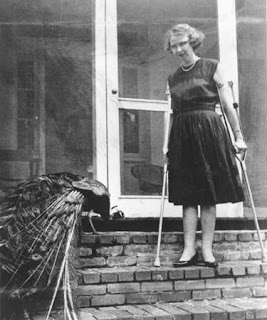Critical Approaches to Literary Texts ( 文學作品讀法 )
Fall 2011
Tuesday 9:10-12:00, 敬業412 (Mei-lun Campus)
Instructor: Prof. Jen-yi Hsu (許甄倚)
Office hours: Friday 2-4 p.m., and by appointment (jyhsu@mail.ndhu.edu.tw)
Course Description: This class will introduce students to fiction, poetry, and drama and open up a complex field of interpreting and analyzing literature. While the first semester focuses on fiction, the second semester will focus on poetry and drama. We will learn how to approach literature as a distinctive genre with its own specifications and acquaint ourselves with the cultural and historical contexts surrounding the texts. The concern of this class is to engage literature with a critical eye and to introduce students to the complex interactions of region, gender, race, class, and narrative technique. Some basic knowledge of critical theory and its terminology will also be introduced as a preparation for further study.
Required Text:
The Norton Introduction to Literature (Shorter 10th Edition)—to be purchased at the University Bookstore (main campus)
Course Requirements:
- Class Prep: You are expected to finish the reading assignments before each class meeting.
2. Attendance: Attendance is mandatory; you are responsible for coming to class on time. Excessive and consistent lateness will also harm your grade. I do not distinguish between excused and unexcused absences. You will automatically fail the course if you miss more than 2 classes. If you must be absent for an extended period of time, you must consult with me to determine the best alternative for completing the course.
- Oral Report: Two students as a group will be assigned one text for your group report. In the report, you have to introduce the biographical information of the author, summarize the plot of the story, analyze the main characters, and select passages that play crucial roles in the whole development of the story. I encourage creative presentation ideas. You are expected to present in front of the class, ready to take questions.
- Midterm and final exams: Remember, there will be no make-up exams. Missing the exams will result in failing the course.
- Blog entries: You are expected to submit 10 blog entries throughout the semester. Deadlines will be announced on the blog: http://literarycollage.blogspot.com/
Grading Policy:
Midterm 30%, final exam 30%, presentation and class participation 30%, blog entries 10%
Course Schedule:
Week 1: 9/27 Intro
Week 2: 10/4 “The Jewelry” by Guy de Maupassant (58-63); “The Cask of Amontillado” by Edgar Allan Poe (101-5)
Week 3: 10/11“Roman Fever” by Edith Wharton (85-94, Alier); “Hills Like White Elephants” by Ernest Hemingway (106-9, Sandy & Amy 孫); “How” by Lorrie Moore (109-15)
Week 4: 10/18 “Araby” (503-7, Eunice & Erica) and “Eveline” (xerox) by James Joyce
Week 5: 10/25 “The Lady with the Dog” by Anton Chekhov (169-80, Susan & Sindra); “Young Goodman Brown” (xerox) by Nathaniel Hawthorne (Queenie & Linda Hsu)
Week 6: 11/1 “Flowering Judas” by Katherine Anne Porter (180-88, Kent); “A Rose for Emily” by Faulkner (391-7)
Week 7: 11/8 “A Pair of Tickets” by Amy Tan; Joy Luck Club (in-class film screening)
Week 8: 11/15 Midterm
Week 9: 11/22 “A Very Old Man with Enormous Wings” by Marquez (271-5, Sunny & Nick); “A Hunger Artist” by Kafka (507-13, Vivian Wang & Eric)
Week 10: 11/29 (no class)
Week 11: 12/6 “Recitatif” (139-52, Kendrick & Chou) and “Strangers” (xerox) by Toni Morrison
Week 12: 12/13 “Boys and Girls” by Alice Munro (570-9, Amy Hsieh & Jenny Chang); “Girl” (116-7) and “In the Night” (xerox) by Jamaica Kincaid; “The Story of an Hour” by Kate Chopin (353-4)
Week 13: 12/20 “The Garden of Forking Paths” by Jorge Luis Borges (463-9, Phoenix & Vivian Lee); “The Yellow Wallpaper” by Charlotte Perkins Gilman (354-65, Cathy & Lisa)
Week 14: 12/27 “A Good Man Is Hard to Find” (299-310, Leighton & Jenny Tseng), and “Good Country People” (310-23, Dora & Marcus) by Flannery O’Connor
Week 15: 1/3 “Everything That Rises Must Converge” by Flannery O’Connor (323-33, Kana & Kimberley); “The Prophet’s Hair” by Salman Rushdie (579-89, Shawn & Lily)
Week 16: 1/10 final exam
Week 17: 1/17 Film Screening: The Namesake








